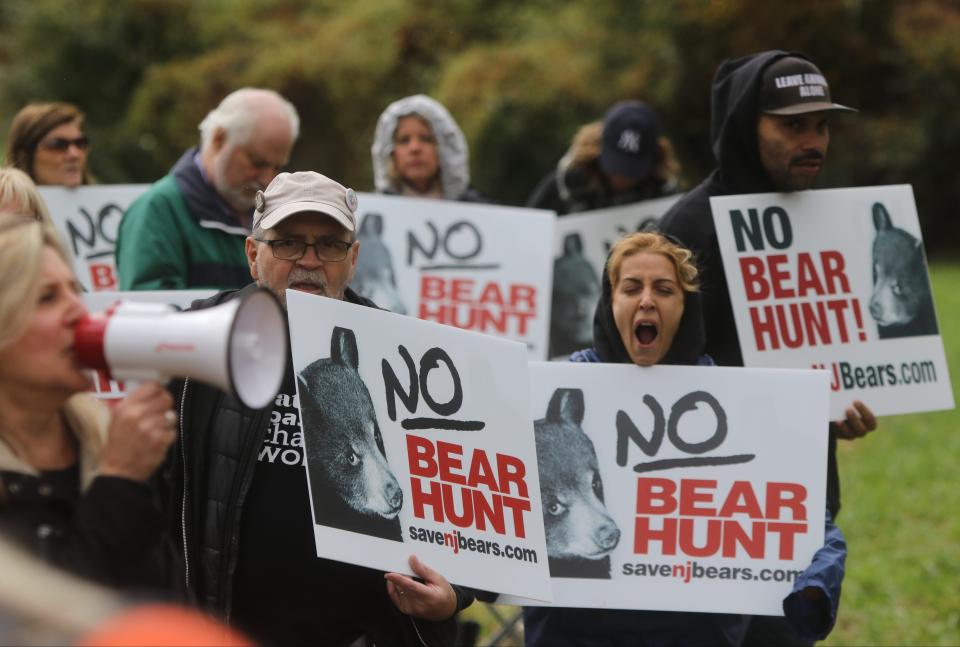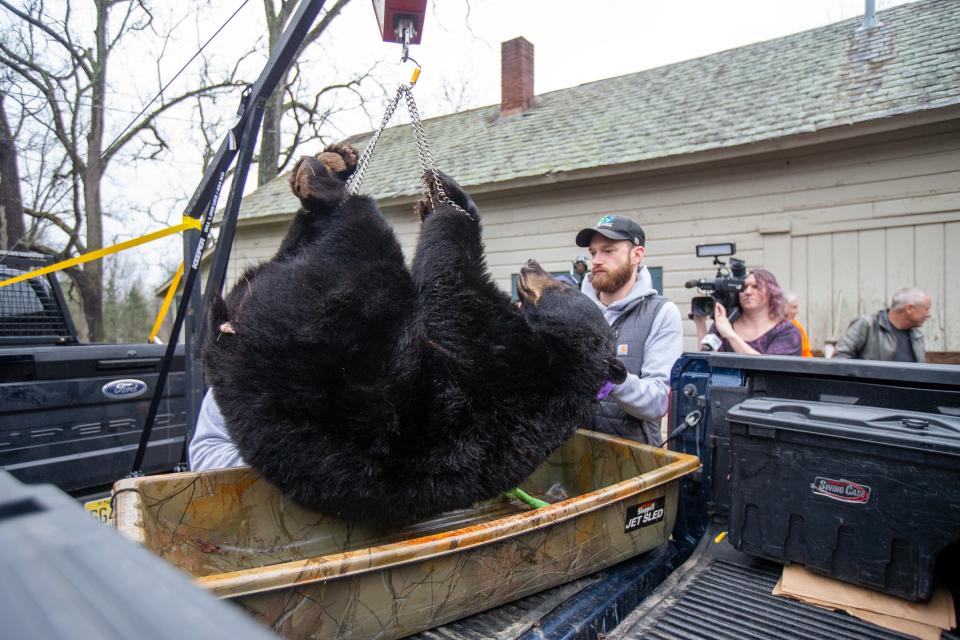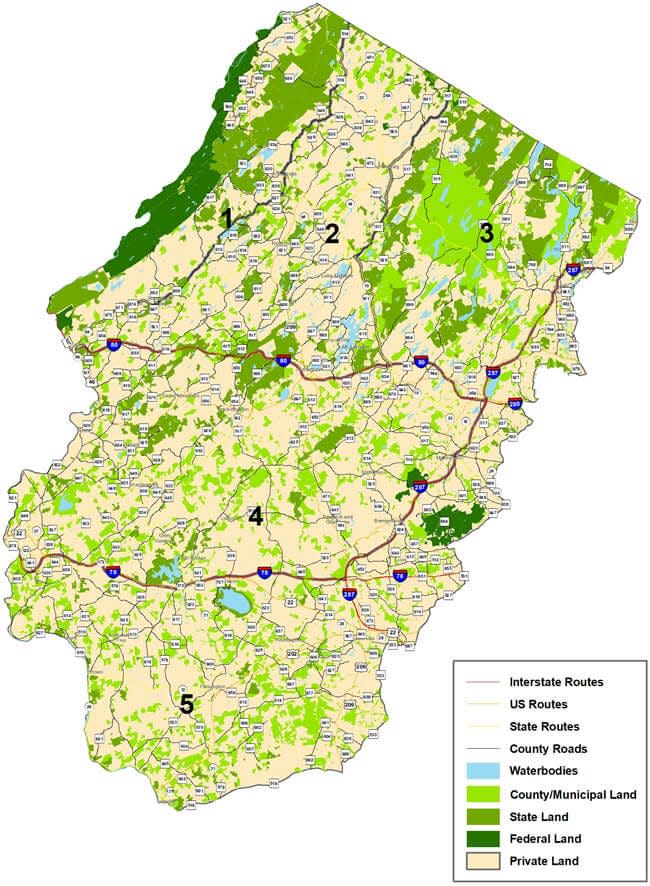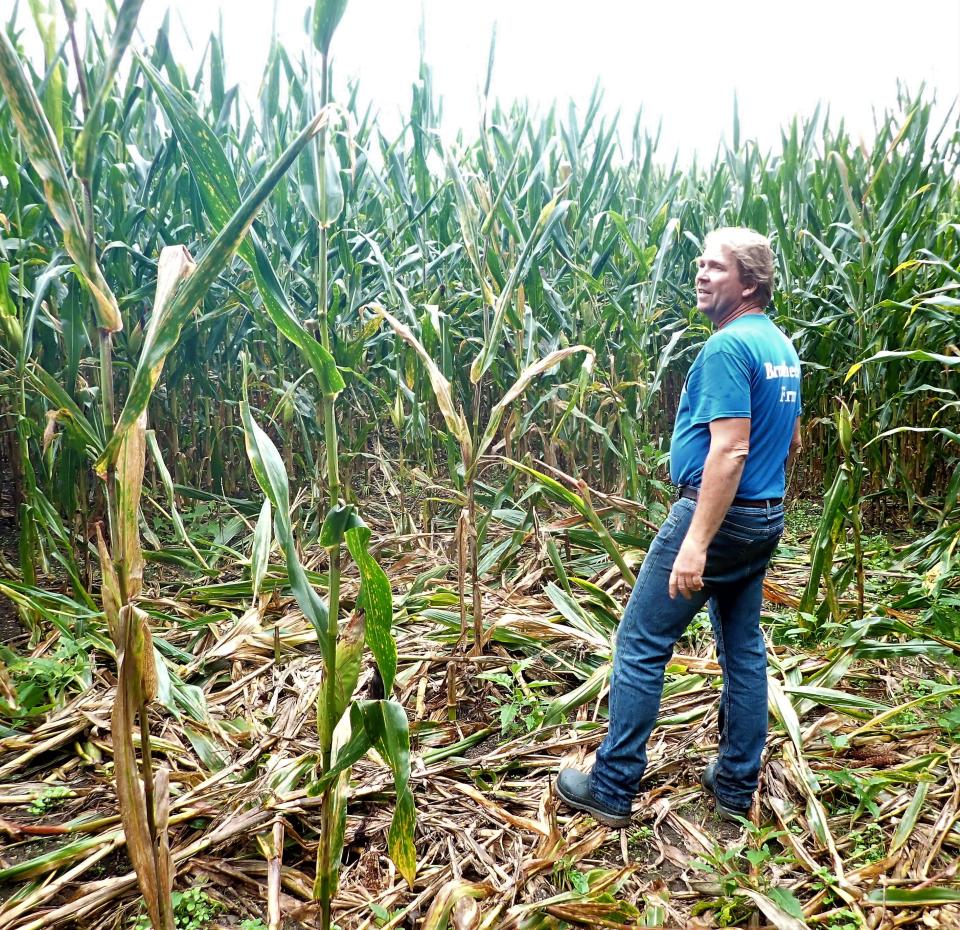Vote for black bear hunt in 2023 possible after State Game Council OKs population plan
UPPER FREEHOLD − The scheduling of a bear hunt for late this year moved forward this week after the New Jersey Fish and Game Commission approved a new Comprehensive Black Bear Management Plan which recommends a managed hunt.
At its meeting at the Assunpink Wildlife Management Area, the commissioners also approved three amendments to the plan which adopt special conditions on the hunt relating to the taking of "cubs" and limits on where a hunter can be in relation to a bait pile.
Although the plan was approved by the council, the document needs to be approved before it can be signed. Council members set two dates in August for their next meeting − giving the state more time for administrative approval − for formal signing.
The plan is the same one adopted early in December which allowed a shortened shotgun season. That plan was adopted under "emergency" conditions which immediately initiated the hunt - with conditions - but expired after six months.

In a ruling nearly two decades ago, the state Supreme Court ruled that the Fish and Game Council had the power to set a hunting season for bears, but needed to have in place a game management plan which allowed for a hunt to proceed. The council's 11 seats are made up of six people representing sportsmen, three farmers, one from the public and the chairman of the Endangered and Nongame Species Advisory Committee.
That emergency plan has expired, prompting the new plan. The council adopted two amendments unanimously, although two of the 11 seats are vacant. They relate to the killing of any black bear "cub" weighing less than 75 pounds, and killing of any black bear when accompanied by cubs 56 pounds or less.
Black bear cubs of that size would mean the animal was born in the previous winter's den. A female with cubs will chase her cubs away in the late spring, early summer of their second year. Those yearlings would be much more than 75 pounds (close to 2 years old) and able to survive on their own.
Related: Despite park closing, bear sightings are down in NJ. Here's what's keeping bruins at bay
The two "no" votes were voiced on the third amendment which prohibits bear hunting within 100 yards of a bait pile. Such piles − usually some sort of grain and often held together with a substance such as molasses − are allowed when hunting deer during the shotgun season. That season, usually the first week in December, is also when shotgun bear hunting is allowed with a permit.
According to game laws, possession of a bear hunt permit is presumed evidence the hunter is after bear.

The two "no" votes were cast by members who believed that baiting bears should be legal as well and didn't want deer hunters to get in trouble since the seasons overlap. When asked, a conservation officer in attendance, said law enforcement officers are experienced enough to know the difference and "there's also something called 'officer discretion.' "
The baiting argument is based on the bear hunt's primary purpose is to manage the bear population, so "baiting" is a tool in that management objective by increasing chances of bear/hunter encounters.
After the document is formally signed, the council will have the authority to set both an archery season − held in October in past years − and the shotgun season which has coincided with the annual six-day shotgun buck season in early December.
Past rules have also allowed for the bear hunt to be cancelled if a target number of bears is reported taken, or extended if a target number is not reached.
That number is based on established formulas which take into account the estimated black bear population and a percentage of that estimate killed in a hunt. The current target is for hunters to harvest 20 percent of the population.

Wildlife biologists believe that number would maintain a population of bears at its current level. Higher than 30 percent (when a hunt would be stopped mid-season), would mean the population would start to decline if continued for several years.
During the meeting it was noted than New Jersey has the most prolific and densest population of bears of any area where bears are native. Carole Stanko, who heads the Bureau of Wildlife Management within the division, said New Jersey sows also have the biggest litters of cubs − three average − compared to other areas where two cubs are average, although a few years ago, a sow in Blairstown was photographed and videoed having six cubs follow her around.
In addition to hunting, the CBBMP also calls for public education about how to avoid attracting bears to their property and, according to Assistant Commissioner Dave Golden, who heads the division, the state's 2024 budget contains another $500,000 aimed at public outreach.
Al Ivany, chief of the division's Bureau of Information and Education, told the council that there has been an uptick in the number of Spanish-speaking people visiting the DEP's bear-related internet pages. The division spent over $388,000 on its 2022 advertising program and had nearly 18.5 million impressions on the internet and nearly five million viewings of an online video.

Golden said he believes that public education is beginning to have success and is a factor which has seen black bear complaints drop by nearly a third of 2022's numbers.
"There are several factors (for the decrease) and I'd like to think public education plays an important part in that decrease," he told the New Jersey Herald during the meeting's lunch break. He noted that weather (mild, snowless winter) likely played a factor as well.
Among other factors likely producing the drop in complaints is that the mild winter weather allowed bears to naturally "wake up" and wander around seeking natural food in the woods before returning to their winter den.
Stanko said that despite being among the most densely populated states in terms of humans, the northern section of New Jersey also boasts the heaviest concentration of black bears in the country.
She noted she once saw a map of Alaska, "There were lots of 'squiggly' lines on it. I looked closer and those lines were outlines of New Jersey." She said there was a map notation that "you could put 77 New Jerseys into Alaska."
Bears: As spring arrives in NJ here are some black bear safety tips and facts
While she did not do the math for the council, Alaska has an estimated black bear population of about 100,000. There are an estimated 3,000 black bears in New Jersey and a simple math calculation means New Jersey has more than twice the number of black bears per square mile as does Alaska (3,000 x 77= 231,000).
Among the monthly reports given to the council is one on black bear complaints received by the state. For the monthly period ending June 21, DEP received 261 black bear complaints, compared to 359 calls for the same period in 2022, or a 27.8% decrease.
The most serious complaints, known as Category I, dropped from 69 in 2022 to 34 this year, a 50.7 decrease. Category II calls dropped 19.8 percent (368 t0 266) and Category III went from 384 to 266, a 30.7 reduction.
By county, Sussex still has the most with 184 incidents reported this year, compared to 284 last year. Morris County has dropped from 139 in 2022 to 117 this year, followed by Warren County, 87 compared to 139 through June 21 of last year.
Hunterdon County saw 53 complaints this year with Bergen County at 40, Passaic at 23 and Somerset at 22. Every county in the state, with the exception of Camden, had at least one reported bear complaint reported to the state DEP this year.
Those numbers are only for complaints reported to the DEP dispatchers. The state has trained many local police departments on how to handle bear-human conflict complaints. However, the department does not require the local departments to file any reports with the state.
This article originally appeared on New Jersey Herald: Bear hunt 2023 possible after NJ Fish and Game approve plan

